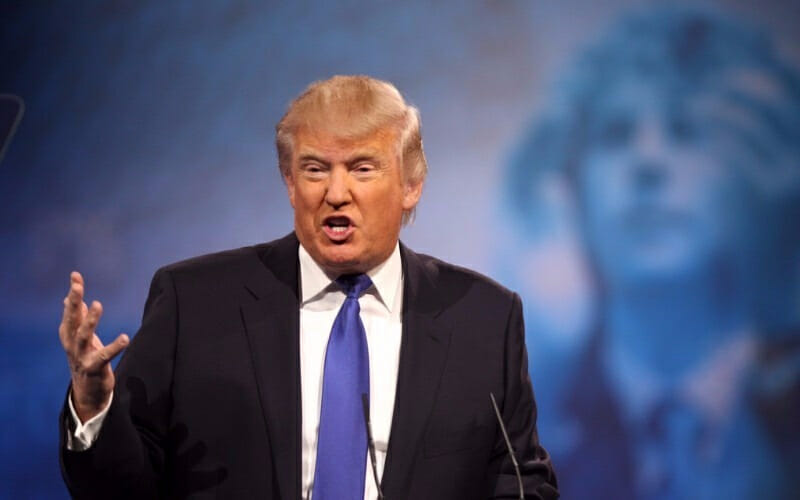
When it Comes to Fair Trade, the Menu isn’t à la Carte
For all his talk of protectionism on the campaign trail, so far, Trump has failed to deliver. But now, a number of trade cases brought by US firms might be able to hand Trump his protectionist aspirations on a platter. Over the next few weeks, the administration is expected to review lawsuits filed against Chinese solar companies and Canadian jet maker Bombardier, among others.
Both cases and the tariffs that are likely to result from them face opposition domestically and abroad. But they might prove irresistible for a president impatient to show off his protectionist credentials – and could be a harbinger of new tariffs on critical commodities, such as steel and aluminum, on the horizon. Unfortunately, that would only mean bad news for the US economy, job market, and consumers at large.
The first decision came on September 22nd, when the International Trade Commission ruled that solar equipment imported from Chinese companies, many of which benefit from state subsidies, had harmed two US firms. The decision was welcomed by the plaintiffs but slammed by the Solar Energy Industries Association, which argued that higher costs for imported solar equipment would kill jobs and stall the expansion of the domestic solar industry. Several days later, the Commerce Department slapped a whopping 220% tariff on Bombardier’s line of C Series jets after Boeing accused the Canadian firm of receiving unfair government subsidies. The punitive tariffs have drawn the ire of two of the US’ top allies, Canada and the UK, where Bombardier manufactures the CSeries’ wings and employs thousands.
Both cases are the epitome of self-serving behavior by US-based companies that want to have their cake and eat it too, benefiting from WTO rules while pushing their governments to enforce obscure regulations that work in their own favor. But the administration runs the risk of enabling these firms’ worst tendencies in an attempt to advertise their America First agenda – disregarding traditional GOP support for free markets and, ultimately, harming the country.
For one thing, both cases exemplify how raising tariffs only ends by reducing trade, harming the job market, and damaging domestic industries. In response to the Bombardier ruling, both Ottawa and London have threatened to cancel contracts with Boeing, costing thousands of US jobs.
On top of that, while the C Series are nominally Canadian, their engines and other components are made in the US – meaning that any blows against Bombardier will eventually reverberate across the border. As for the ITC’s ruling on solar energy imports, the potential tariffs could end up doubling the price of solar installations, stifling demand and putting some 88,000 jobs at stake.
The likely effects on the US economy ring true with past experience. Studies have shown that Bush’s use of the “safeguards” law to impose temporary tariffs on steel imports, and Obama’s use of similar measures to restrict Chinese tire imports, ended up causing more job losses than increases. According to one study, Bush’s maneuver eventually caused 200,000 Americans – even more than were employed in the whole steel industry – to lose their jobs because of higher steel prices.
The most worrying part of all? These aren’t just a few isolated spats. They come at a time when the Trump administration has also raised the prospect of using an obscure provision of US trade law, Section 232, to slap imports on key commodities like steel and aluminum. Their chief complaint is that China has been subsidizing local plants and dumping cheap aluminum on foreign markets, threatening US producers and national security. The complaint might be sound, but proposed solution runs the risk of backfiring.
When it comes to the question of how to address Chinese dumping, import tariffs are a poor answer. For one thing, in 2016, Chinese aluminum accounted for 8.5% of foreign supplies by weight to the US market, while imports from Canada made up more than half. Of course, importing aluminum from Canada could hardly be called a threat to national security.
But according to Section 232, imports from both states, as well as others, would have to be investigated before the government makes a final decision. This means that, even though the US and Canadian aluminum industries are deeply intertwined, our northern neighbor might well get caught up in the dragnet.
In addition to the critical connections between the US and Canadian aluminum industries, individual aluminum firms, such as Russian company Rusal, also play key roles in the US aluminum supply chain. Rusal is one of the main suppliers for the US aluminum value product industry, providing materials for the automotive, construction, transportation, can making, and packaging manufacturing sectors. Numerous US downstream aluminum firms also rely heavily on foreign exporters to meet their needs. And because the firm produces more than 90% of its aluminum using low-carbon sources like hydropower, it manufactures the metal much more sustainably than even most US firms – many of which have been forced to outsource production in countries like Iceland, where there are lower electricity costs. Ignoring how much the US and foreign aluminum exporters depend on each other by passing an import tariff would result in mutually detrimental outcomes as well.
In today’s globalized world, with so many companies and industries depending on one another for their supply chains, import bans are useless at best and counterproductive at worst. As the Trump administration threatens to wield an outdated section of US trade law to protect national security and facilitates US firms’ efforts to strategically exploit anti-dumping provisions, they run the risk of opening a Pandora’s box. Of course, the US should stand for free trade and has the right to redress when other states engage in unfair practices. But the administration must be careful not to stir up new problems in efforts to deal with existing ones.

